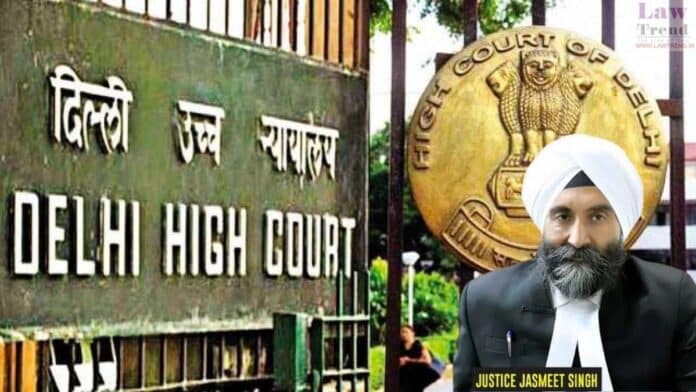The Delhi High Court has set aside the conviction and one-year jail term awarded to a city police official for allegedly taking a bribe of Rs 1,000 from a woman in 1991 to arrest her neighbour.
Justice Jasmeet Singh said the demand for bribe and its acceptance must be proved beyond reasonable doubt by the prosecution and in the present case, the “proof of demand and acceptance” had not been “substantiated” by the statements of witnesses.
“The demand for bribe followed by its acceptance must be proved beyond reasonable doubt. The burden of proving its case beyond all reasonable doubt lies squarely on the prosecution,” said the court in a recent order on the police official’s appeal against the trial court verdict.

“It leaves no manner of doubt that the prosecution in the instant case has failed to prove the demand and acceptance of bribe either through direct or indirect evidence which constitute the foundational facts and thus, it would be unsafe and impermissible to sustain the conviction of the appellant. As a result, the instant Criminal Appeal is allowed and the conviction and sentence recorded by the learned Special Judge, Delhi is set aside,” the court said.
According to the prosecution, the complainant’s brother had a quarrel with their neighbour in 1991 and she filed a police complaint. The case was entrusted to the appellant, a sub-inspector at the police station concerned at that time.
The appellant allegedly demanded Rs 2,000 from the complainant to arrest her neighbour and subsequently asked her to pay the amount in two instalments.
It was alleged that after the first instalment of the bribe was paid to the appellant, a raid party of the Anti-Corruption Branch recovered Rs 1,000 from him. His hands were put into a solution of sodium carbonate which turned pink as phenolphthalein powder had been applied to the currency notes earlier, according to the prosecution.
In 2000, the trial court found the appellant guilty of offences under sections 7 and 13(i)(d) of the Prevention of Corruption Act, 1988, and sentenced him to rigorous imprisonment for one year and fined him Rs 500 on each count.
Also Read
The appellant, represented by lawyers Anurag Andley and Kshitij Arora, argued that he had been implicated in a false case and the complainant, against whom three-four cases were already pending, had a strong motive as she held a grudge against him for not arresting her neighbour.
It was also said that the appellant knew that the complainant’s neighbour was already out on bail and there was no reason for him to demand a bribe from the complainant to arrest him.
The court observed that the trial court “failed to appreciate” that the prosecution must prove the demanding and acceptance of the bribe by primary or secondary evidence. In the present case, while the evidence of the complainant was “untrustworthy”, the independent witness did not support the case of the prosecution, it said.
“The evidence of PW6 (complainant) does not inspire confidence and is uncorroborated by any other witnesses, and the credibility of witness itself is in doubt as the complainant wants to satisfy her ulterior motives only to get Manoj Kumar (her neighbour) arrested and to get favours in the investigation,” the court said.
“The solution turning pink in the absence of demand (for bribe) will have no bearing as the law is settled in this regard. Hence the demand of bribe either by primary or by secondary evidence has not been proved,” it said.







